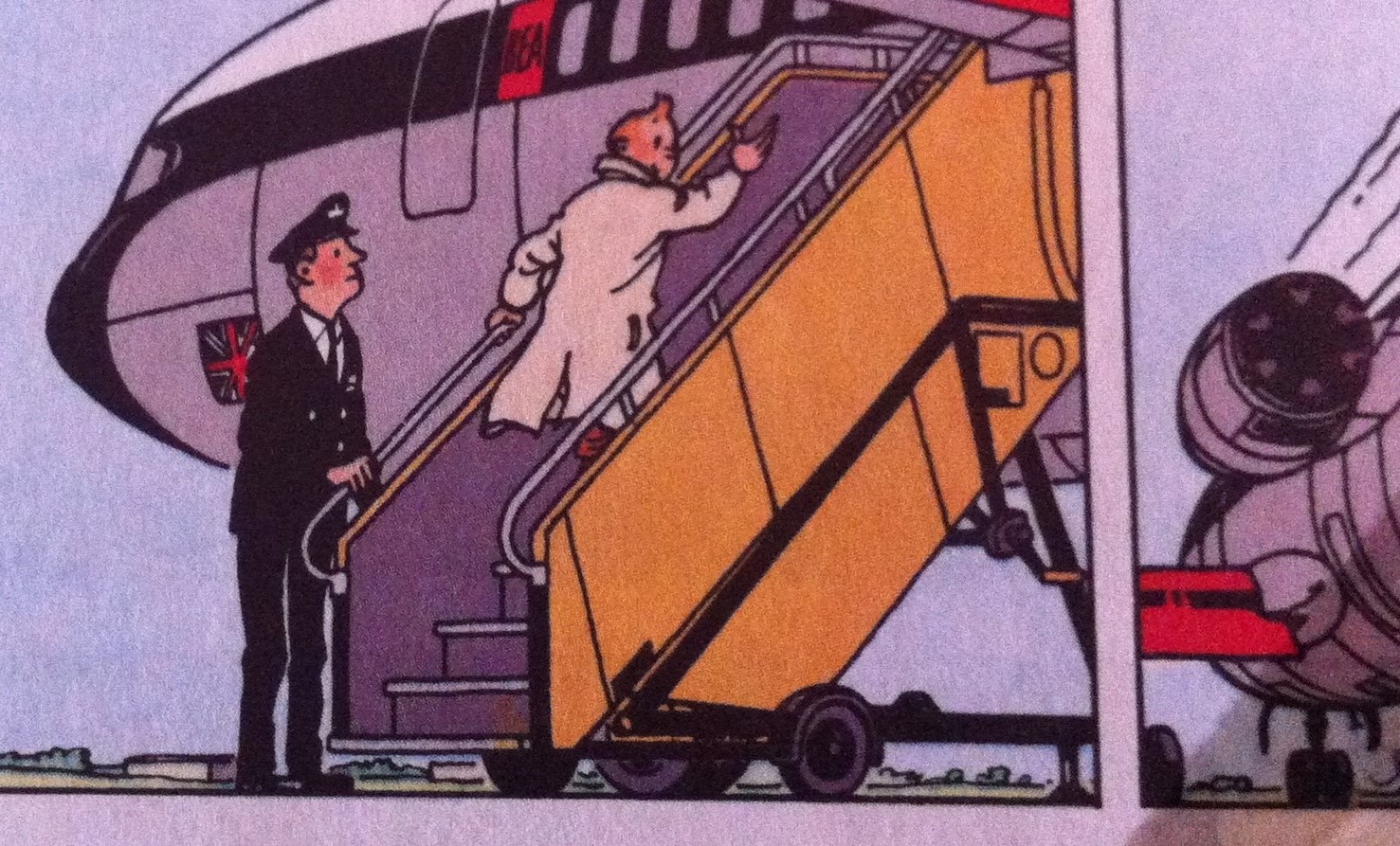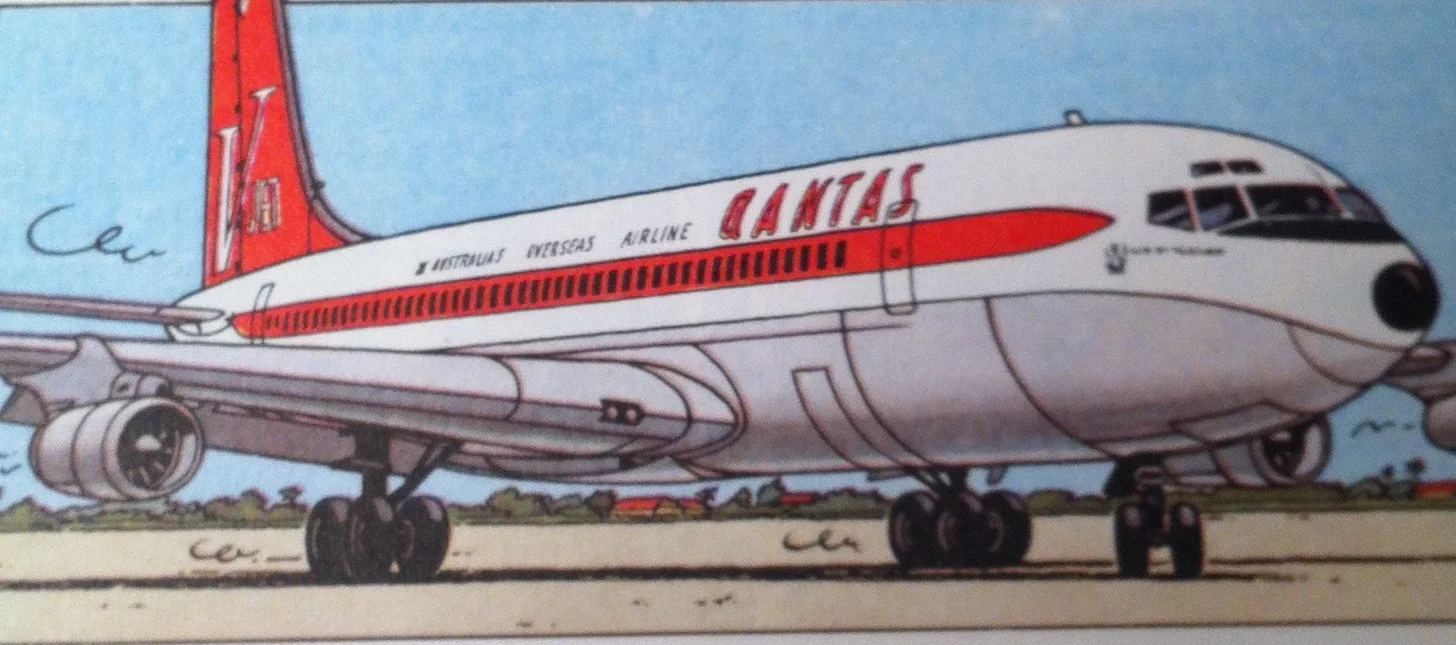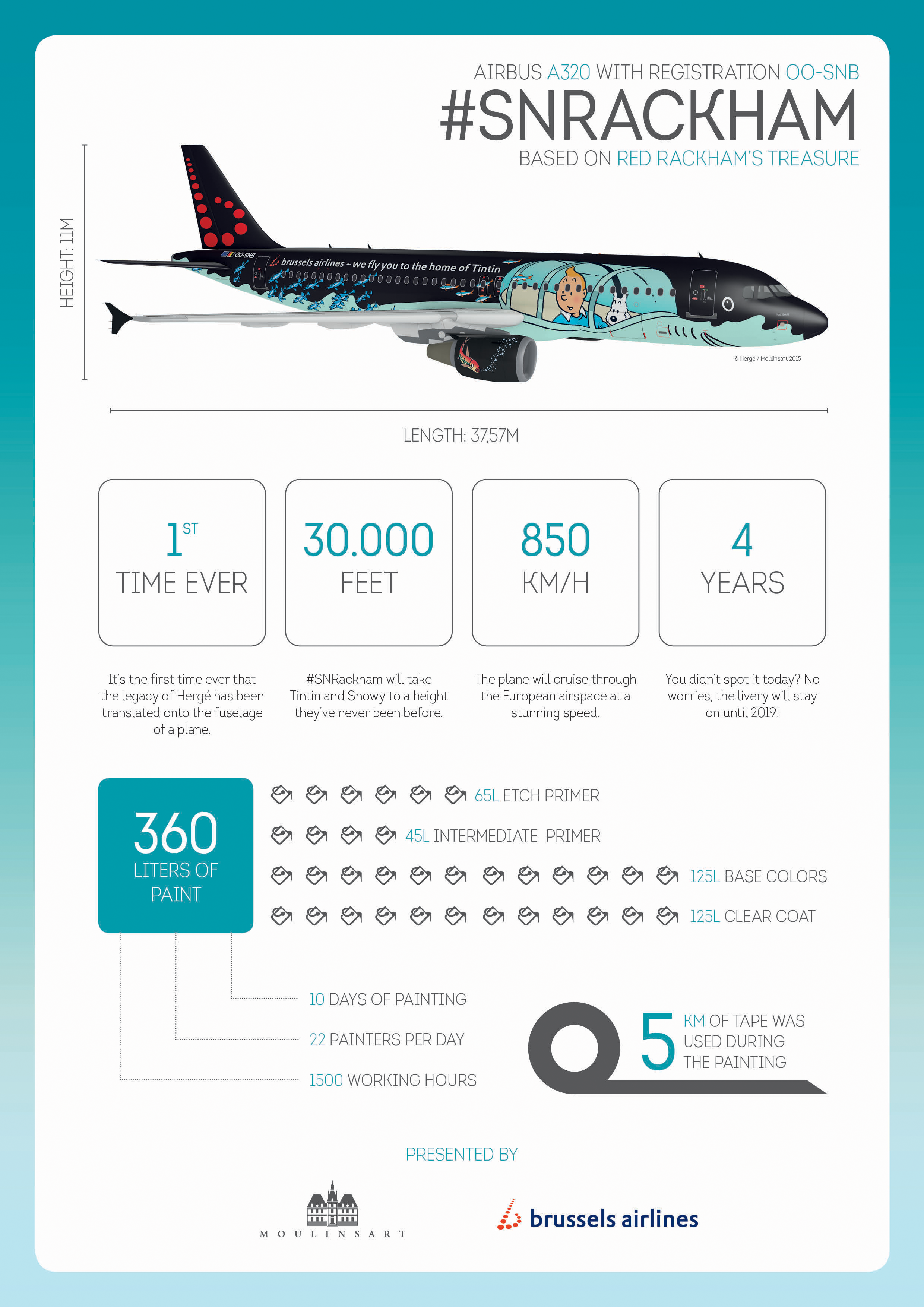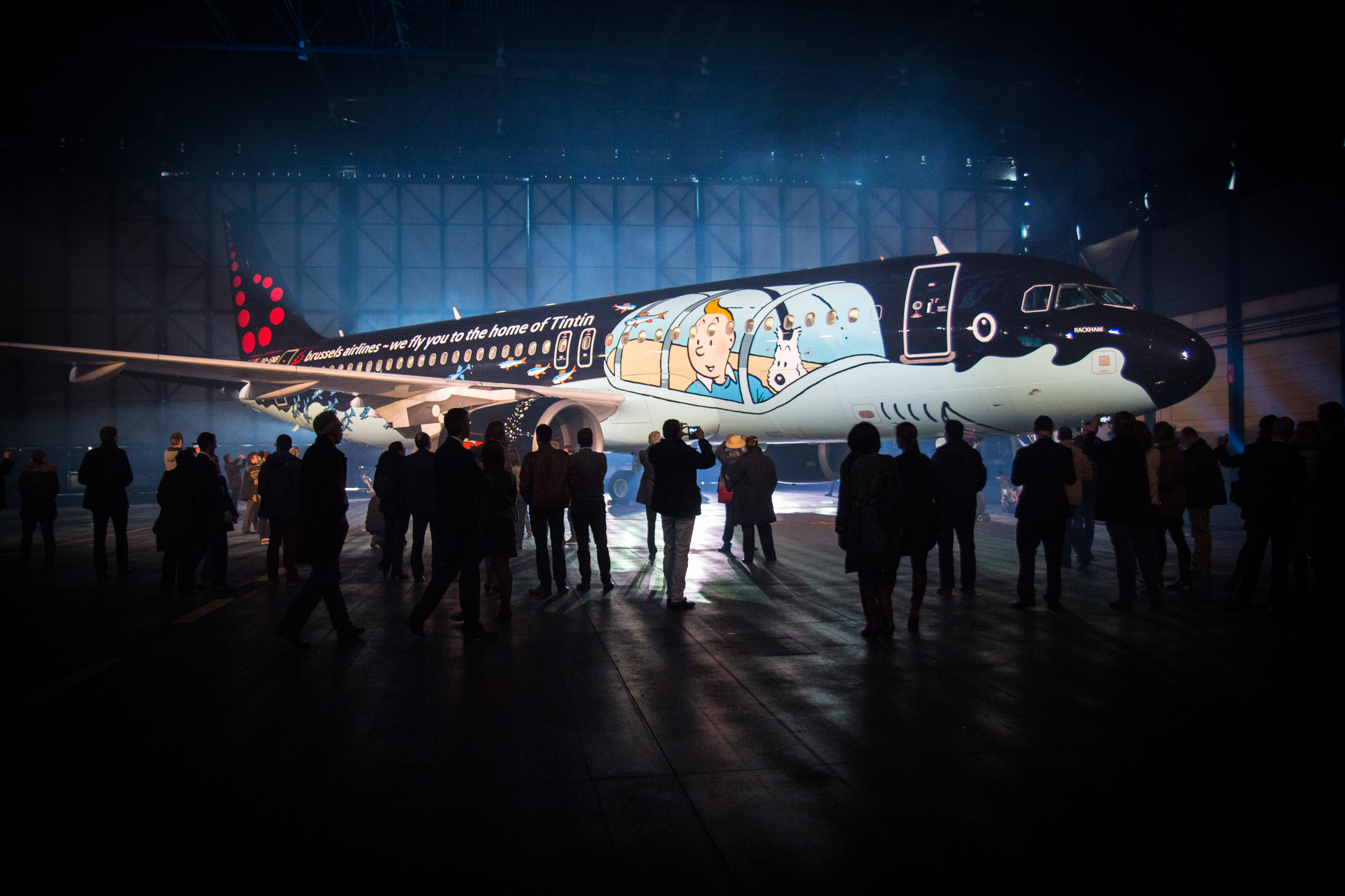Brussels Airlines Tintin livery
I am really thrilled to write this post.
Many original and beautiful liveries have passed through the pages of this blog...but today's is not just another fancy livery...today's post is about one of my (fictional) heroes: Tintin.
Brussels Airlines has joined forces with Moulinsart, publisher of Hergé's masterworks, to unveil a Tintin-themed Airbus A320.
The fact that this is the first time a Tintin-liveried airliner has taken to the skies kind of amazes me, since, given the constant presence of all sort of flying machines on Hergé's work and the Tintin's predilection for travel, it just feels so natural to have him on a plane!
On this occasion the motive, the shark-shaped mini-submarine in Tintin's "Red Rackham's Treasure", is maritime rather than aeronautic, however the link between Tintin and all sort of aeronautical activity is strong throughout all of Tintin's adventures. And I mean "aeronautical" in a really broad sense, since the Belgian reporter even managed to land on the Moon ahead of Neil Armstrong and the Apollo XI crew!
In case you were wondering, Tintin is not only on the outside of the aircraft, the interior is also Tintin-themed!
How many children have got their first glimpse of the World and of distant lands through the adventures of Tintin?
The best in-flight entertainment ever!
Even if leave aside military aircraft, private airplanes and spacecraft, the amount of commercial aircraft of all types that appear on Tintin's adventures is remarkable, and always drawn with the outmost attention to detail.
As a curiosity, given the topic of this post, Tintin flew on Sabena, the historical Belgian flag carrier and ancestor of Brussels Airlines, on at least one occasion, when traveling to Geneva in the company of Captain Haddock during "The Calculus Affair"!
Being Belgian, Tintin's Sabena flight was not totally unexpected!
It is also remarkable how Tintin's modes of transportation evolved over decades, in parallel with technological advances in the real World. To the delight of tintinologists, many of these details have been skillfully compiled by Michael Farr in its magistral "Tintin: The Complete Companion: The Complete Guide to Tintin's World".
If in its early adventures Tintin traveled mainly by sea, he soon became an early adopter of air travel. The aircraft he travels on reflect the same evolution over the decades. A case in point: in the first edition of "The Black Island", published in 1938, Tintin flies back home on an Italian-made Savoia-Marchetti S73P, whereas later, post-war editions were amended to show him boarding a tri-engined De Havilland DH-121 Trident jet of BEA (British European Airways, one of the airlines that later merged to form British Airways)
On "King's Ottokar Sceptre" the Savoia-Marchetti S73P makes another appearance, together with an unidentified seplane that ressembles a Catalina flying boat, although with some remarkable differences. Judge by yourselves...Anyone can id it?
In addition to Sabena's role, another historical European airline appears on "The Calculus Affair": upon arrival at Geneva Cointrin airport, Tintin and Haddock are shown disembarking their Sabena DC-6 through a Swissair ladder.
When I saw this, I couldn't but remark how the fate of these two airlines would become entangled a few decades later, in the late 90s and early 2000s when Swissair's catastrofic decision to acquire an equity stake in Sabena led to the subsequent bankruptcy of both airlines and the demise of the Qualiflyer alliance. Ironically, the two airlines were salvaged and "re-launched" as Brussels Airlines and Swiss respectively and they find themselves together again, this time under the Lufthansa group umbrella.
Other Tintin albums with noticeable airline presence are "Tintin in Tibet", where Tintin and Haddock are seen first disembarking from an Air India Lockheed Constellation at Delhi airport and, later in the book, rushing to board a DC-3 aircraft of the same airline that takes them to Kathmandu, en route to search for their friend Chang, presumed dead after a DC-3 crash in the Himalayas.
In later albums Tintin fully embraces the jet era.
"Flight to Sidney", where else?
On "Flight 714" a Qantas Boeing 707 (an aircraft type that the Australian airline indeed operated) is shown, in all its glory, at Djakarta airport, whereas on "Tintin and the Picaros", Tintin and his companions fly to South America on a four-engined jet that ressembles a Boeing 707.
The closing moment of Tintin's adventures. Remarkably, they straddle a period that goes from the time of the large ocean liners to the Jumbo jet era
It is remarkable that the very last scence of all of Tintin's albums (leaving aside the unfinished "Tintin and the Alph-Art") is that of a magnificent Boeing 747 flying the hero back home.
This is, by no means, an exhaustive recollection of all airline moments on Tintin's books, I am aware that I have left some behind, for example the occasion, on "The Red Sea Sharks" when Tintin and Haddock find themselves crash-landing on a DC-3 while flying between the imaginary city of Wadesdah and Beirut...Here I just intended to illustrate Tintin's strong connection to air travel and commercial aircraft. It is possibly not an exageration to state that there are few, if any, fictional characters whose presence on an aircraft livery is more deservedly justified.
Some facts and figures about Brussels Airlines Tintin #SNRackham Airbus A320
Brussels Airlines has also put together some videos about the making-off and unveiling of the Tintin #SNRackham Airbus. You have until 2019 to fly on it!












